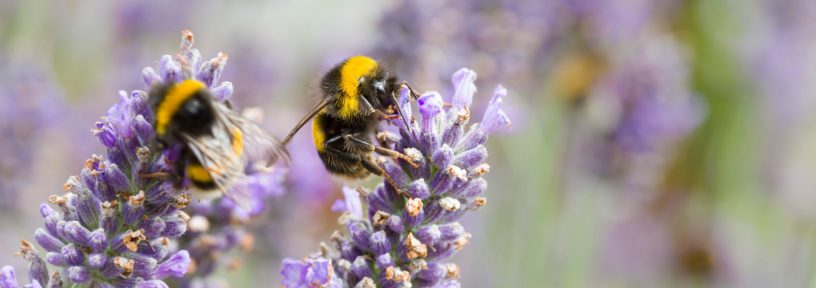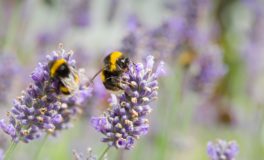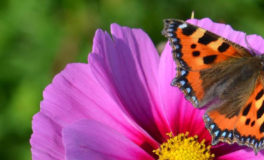Scientists from the University of Southampton have gathered evidence to suggest that bees are being affected by a chemical in diesel fumes. It impairs their ability to sniff out sources of pollen and nectar.
Exhaust fumes confuse bees. Bees learn to decipher the chemical messages they get from flowers. They can then home in on the blooms that will give the best yield of nectar. So says Dr Tracey Newman, a Southampton Neuroscientist.
Tests in the laboratory have shown that two of the odour chemicals in oilseed rape are “lost” when in contact with a constituent of diesel exhaust known as NOx or mono-nitrogen oxide.
The team researched how bees react to the scent of oilseed rape before and after the smell chemicals were affected by NOx. They noticed a reduced response to the “damaged” scent molecules.
Exhaust fumes confuse bees – Pollution could affect bee behaviour
Lead researcher, Dr Guy Poppy surmised that the airborne pollution appeared to be interfering with “the complex relationship” between plants and bees. Dr Newman added that the study highlighted the need to reduce pollution. Improving air quality to protect pollinating insects as well as human health.
I’m sure that more research is needed into this subject. Ideally, looking at experiments in real situations rather than in the laboratory. But it would seem that pesticides are not wholly responsible for the difficulties bees have experienced in recent years . But there are still lots of questions still to answer.
For example:
- Do petrol fumes or even waste gasses from heating oil have the same effect as diesel fumes?
- Are the effects reduced when flowering plants are grown in huge swathes rather than as individuals?
- Are the scent molecules from some plant species more affected than others?
- Does it make a difference if there is a physical barrier between the source of pollution (the road) and the flowers? (eg a hedge)
Exhaust fumes – Protecting bees from pollution
The value to UK food production of “pollination services” is estimated at hundreds of millions of pounds. So until we find out more about how bee health is affected by human activities – and learn how to counteract the damage, perhaps we should all be working to reduce pollution. Maybe we can all use natural lawns, green roofs, native hedges and green plants to filter pollutants from the air. Similarly, by using car-sharing schemes and buying food locally we can help reduce road usage and keep the air clean.

 How do you keep bees on a roof
How do you keep bees on a roof 


